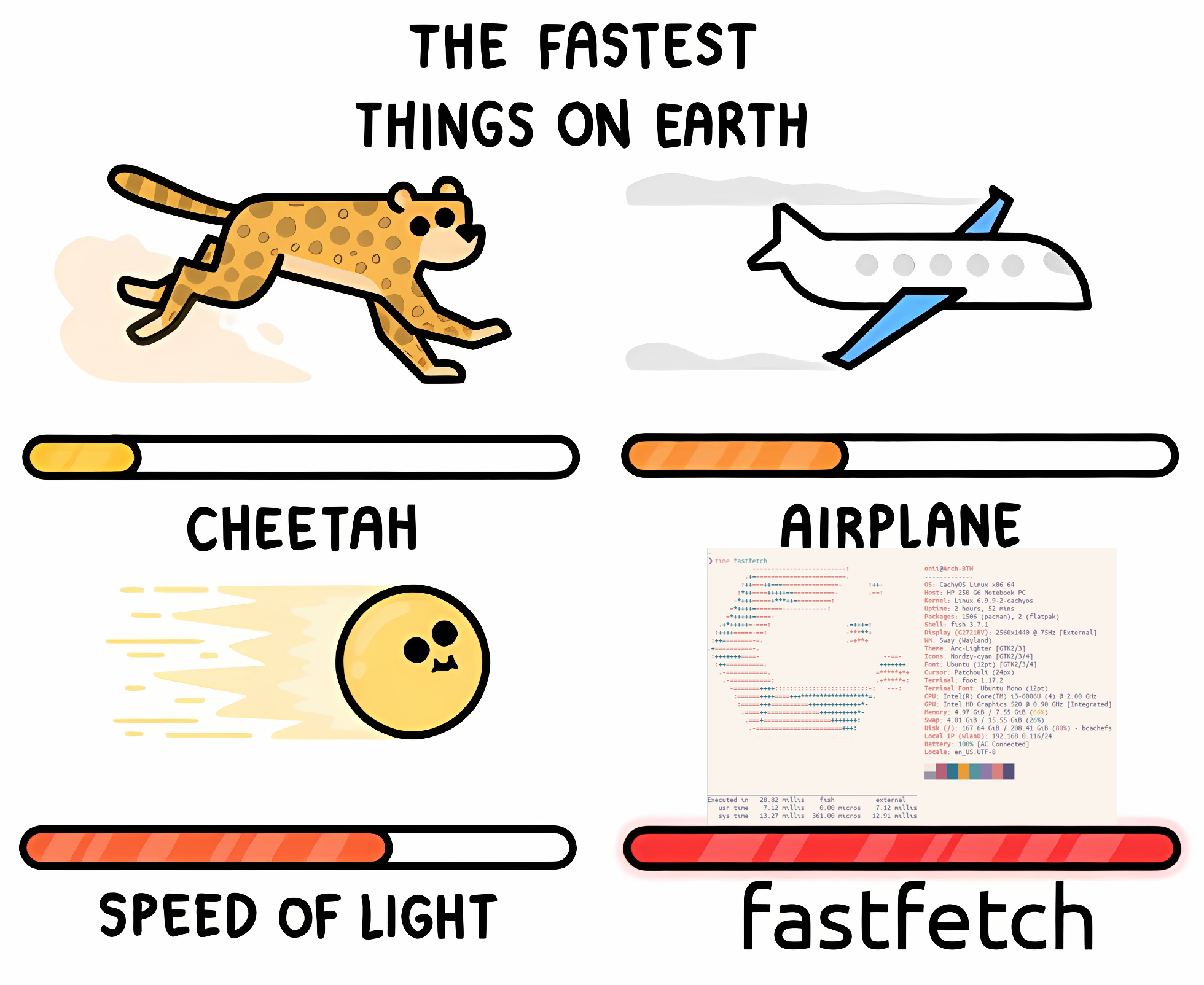this post was submitted on 14 Jul 2024
487 points (96.9% liked)
linuxmemes
24305 readers
2329 users here now
Hint: :q!
Sister communities:
Community rules (click to expand)
1. Follow the site-wide rules
- Instance-wide TOS: https://legal.lemmy.world/tos/
- Lemmy code of conduct: https://join-lemmy.org/docs/code_of_conduct.html
2. Be civil
- Understand the difference between a joke and an insult.
- Do not harrass or attack users for any reason. This includes using blanket terms, like "every user of thing".
- Don't get baited into back-and-forth insults. We are not animals.
- Leave remarks of "peasantry" to the PCMR community. If you dislike an OS/service/application, attack the thing you dislike, not the individuals who use it. Some people may not have a choice.
- Bigotry will not be tolerated.
3. Post Linux-related content
- Including Unix and BSD.
- Non-Linux content is acceptable as long as it makes a reference to Linux. For example, the poorly made mockery of
sudoin Windows. - No porn, no politics, no trolling or ragebaiting.
4. No recent reposts
- Everybody uses Arch btw, can't quit Vim, <loves/tolerates/hates> systemd, and wants to interject for a moment. You can stop now.
5. 🇬🇧 Language/язык/Sprache
- This is primarily an English-speaking community. 🇬🇧🇦🇺🇺🇸
- Comments written in other languages are allowed.
- The substance of a post should be comprehensible for people who only speak English.
- Titles and post bodies written in other languages will be allowed, but only as long as the above rule is observed.
6. (NEW!) Regarding public figures
We all have our opinions, and certain public figures can be divisive. Keep in mind that this is a community for memes and light-hearted fun, not for airing grievances or leveling accusations. - Keep discussions polite and free of disparagement.
- We are never in possession of all of the facts. Defamatory comments will not be tolerated.
- Discussions that get too heated will be locked and offending comments removed.
Please report posts and comments that break these rules!
Important: never execute code or follow advice that you don't understand or can't verify, especially here. The word of the day is credibility. This is a meme community -- even the most helpful comments might just be shitposts that can damage your system. Be aware, be smart, don't remove France.
founded 2 years ago
MODERATORS
you are viewing a single comment's thread
view the rest of the comments
view the rest of the comments

I've never experienced that. Also Android is OpenJDK based and the applications in Android work well and the system is well optimized
Yep, I also don't fully agree on that one. I'm typing this on a degoogled Android phone with quite a bit stronger hardware than the iPhone SE that my workplace provides, e.g. octacore rather than hexacore, 8GB vs. 3GB RAM.
And yet, you guessed it, my Android phone feels quite a bit laggier. Scrolling on the screen has a noticeable delay. Typing on the touchscreen doesn't feel great on the iPhone either, because the screen is tiny, but at least it doesn't feel like I'm typing via SSH.
That has to be because the code is better optimized for the hardware in case of iPhone and less so which language it was written in.
Why? I certainly expect that to be a factor, but I've gone through several generations of Android devices and I have never seen it without the GC-typical micro-stutters.
I've never experienced that and I am running a several year old phone
I have experienced the delayed scrolling, mostly on cheaper phones.
But that's mostly because i'm used to phones having 120+hz screens now, going back to a 60hz screen does feel a bit sluggish, which is especially noticeable on a phone where you're physically touching the thing. I think it might also have something to do with the cheaper touch matrixes, which may have a lower polling rate as well.